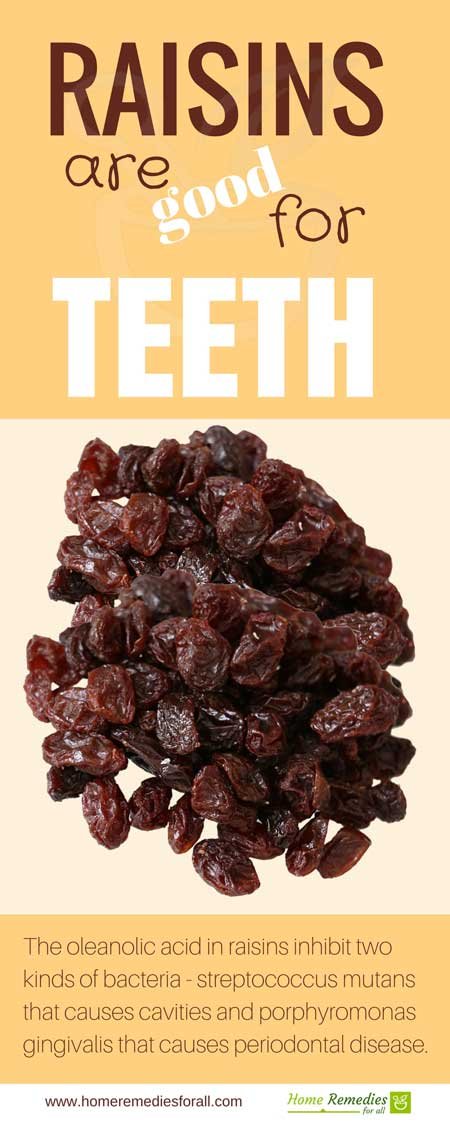It sounds counter intuitive. How can raisins be good for teeth? Since it is a sugary sticky dry fruit, your subconscious will say that it should cause cavities. You are not alone here. This has been a long held perception by most parents. Even many dentists specifically recommend not to use raisins as snacks for children.
Before getting into details of the research work, let's first understand how sugar promotes cavities.
Sugar and Cavities
It is the plaque build up that really causes cavities in your teeth. The plaque is caused by bacteria.
The refined carbohydrate debris left after food in your teeth are food for the bacteria living in your mouth. The refined carbohydrates (sugar) and bacteria releases acid that combines with your saliva to cause plaque.
Plaque can gradually build up after every meal. So, you must wash your mouth after every meal to clean your teeth of the leftover food debris. That is why regular brushing is a good oral habit.
Now sugar comes from many sources including, candies, ice creams, sweets, carbohydrates and dry fruits.
Raisin is of course a sugar rich food. So, what is it in the raisins that fights cavities instead of causing it?
Why Raisins are Good for Teeth and how They Help Fight Tooth Decay and Prevent Cavities?
Sugar is a complex refined carbohydrate that produces sweetness. The following components contributes to this sweetness
- Glucose
- Fructose
- Galactose
- Sucrose
- Lactose
- Maltose
Different Types of sugars have different combinations of the above components making sugar coming out if sugar cane different than coming out of food grains, fruits and other sources.
Most cases of dental problems are caused by sucrose. Raisins have only glucose and fructose. Si, it is clear that raisins will not cause cavities.
But, what is in raisins that prevents cavities?
A study conducted by the US Department of Food and Nutrition reveals that certain phytochemicals in raisins actually help fight bacteria that causes dental cavities or caries medical professionals like to call.
Phytochemicals are antioxidants and many food items contain these in varying degrees.

Out of the 5 phytochemicals studied in raisins, the oleanolic acid was found to inhibit two kinds of bacteria - streptococcus mutans that causes cavities and porphyromonas gingivalis that causes periodontal disease.
So, avoiding raisins may not be a good idea. Eating a handful of them with breakfast may protect your teeth from decaying.

